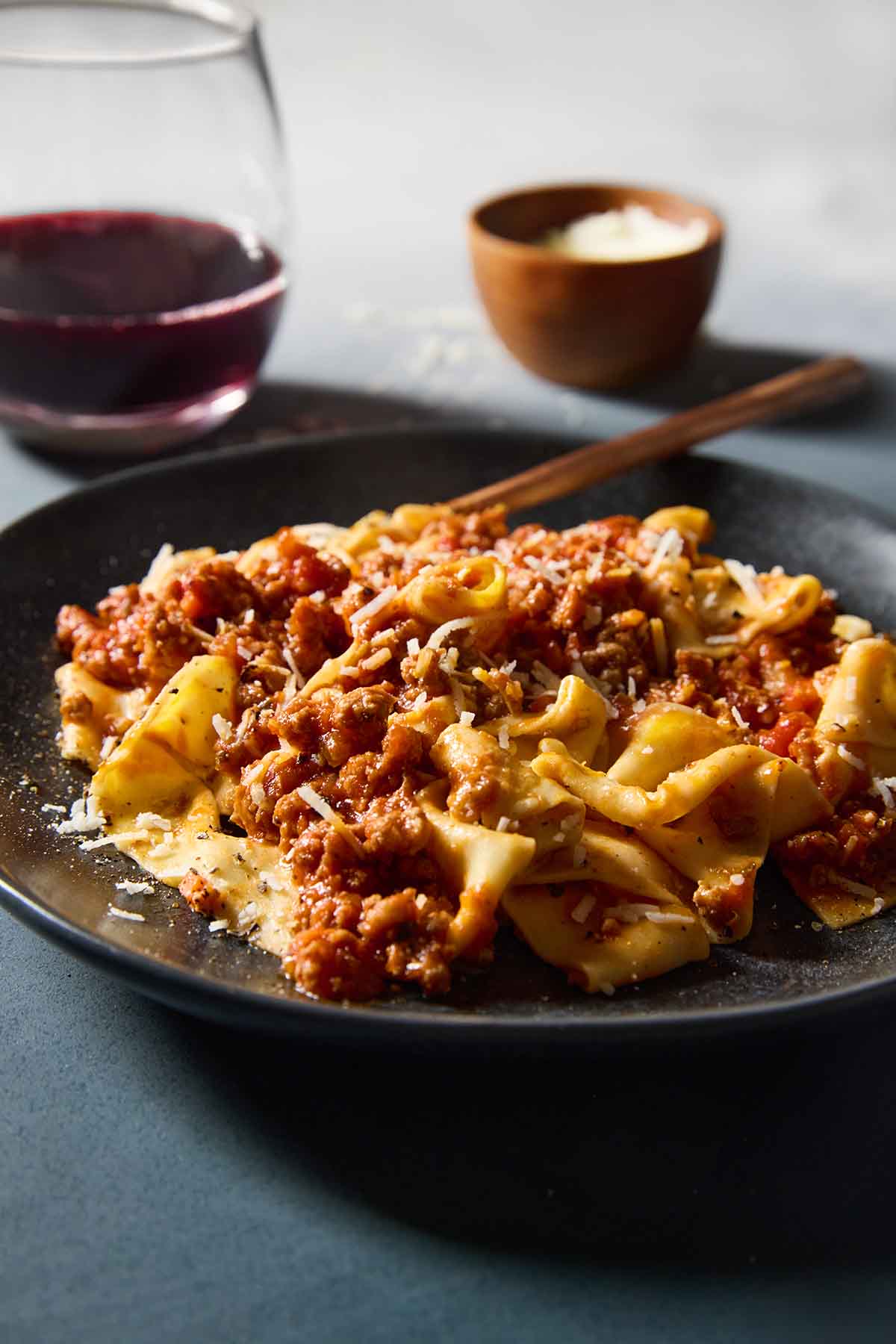
In her first cookbook, The Classic Italian Cookbook, Marcella Hazan offers the home cook an authentic Bolognese sauce recipe. The recipe calls for chuck and/or beef necks—the traditional kind an Italian grandmother would approve of, thank you very much.
This is my version of her recipe, with some tweaks. I’ve added veal and pork to the beef, and I’ve doubled her recipe, as we could never get enough!
Yes, it does take a while to make, although most of the time, the Bolognese gently simmers unattended on the back burner, except for occasionally making lazy eights with a wooden spoon.
Chow,

Jump To

Why You Can Trust This Recipe
Marcella’s bodacious Bolognese is all about concentration–of flavors and texture–which it gets through low and slow cooking. First, there’s the milk. Its calcium and acidity help tenderize the beef while contributing to a creamy texture.
Then, while the sauce burbles, collagen breaks down, creating a marvelously velvety consistency. Along the way, the milk and wine evaporate, concentrating the favors.
The San Marzano tomatoes cook down during the long cooking, lending balanced sweetness and acidity. That last knob of butter enriches and emulsifies the sauce. About the only concentration not going on here is yours–this is pretty much a set-it-and-forget-it sauce.
Notes on Ingredients
- Ground chuck–You can use all beef or a combination of veal and beef. The more marbled the meat, the sweeter the ragu. (The most desirable cut of meat is the neck portion of the chuck. You may have to put a special order for it from your butcher.)
- Milk–The enzymes in milk help to soften the proteins in the meat to make it more tender. Don’t be tempted to use low-fat milk; the added fat in whole milk adds a welcome layer of richness to the sauce.
- White wine–Stick with a dry white here, such as Sauvignon Blanc or Pinot Grigio. Avoid sweet wines, as they’ll change the flavor of the sauce.
- Parmesan cheese–Use the imported stuff (Parmigiano-Reggiano). It makes a world of difference.
How to Make Bolognese Sauce
- Heat the oil and 6 tablespoons of the butter in a large, heavy-bottom Dutch oven until the butter is melted and stops foaming.
- Add the onion and sauté until softened.
- Stir in the celery and carrot and cook for 2 minutes.
- Add the meat and season with salt. Cook, stirring occasionally, until the meat is no longer raw.
- Pour in the milk and simmer over low heat until evaporated.
- Add the nutmeg and wine and continue to simmer until the wine has evaporated.
- Stir in the crushed tomatoes and simmer gently, stirring occasionally, until the fat separates from the sauce.
- Season to taste and serve with cooked drained pasta and freshly grated Parmigiano-Reggiano.
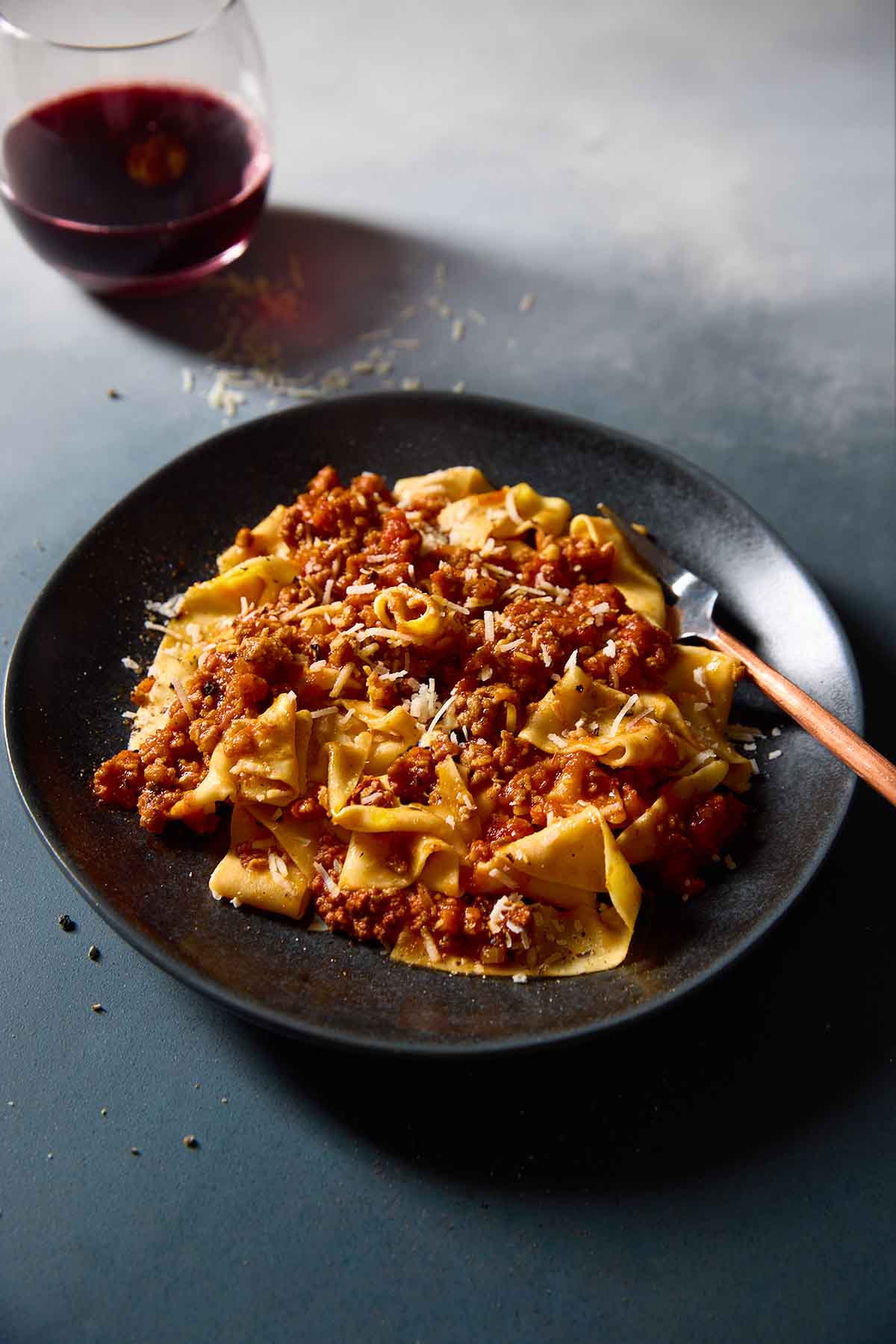
Common Questions
In essence, Bolognese sauce is spaghetti sauce. Though it’s no ordinary meat sauce. It’s a long, slowly simmered sauce that’s richer and creamier than your everyday marinara due to the inclusion of milk. It also is less predominated by tomatoes than your typical marinara. It’s named for its city of origin, Bologna.
Believe it or not, traditional Bolognese contains none of the aromatic herbs or spices that many consider necessary in all Italian dishes. You may be tempted to add them, but do your best to resist. The nutmeg is a must—don’t leave that out.
Storage & Reheating
Let your sauce cool completely before storing it in an airtight container in the refrigerator for up to 4 days. Bolognese sauce can be frozen in zip-top bags or freezer-safe containers for up to 3 months. Thaw it in the refrigerator overnight before using.
To reheat your sauce, place it in a large saucepan over low heat and warm gently, stirring occasionally.
Pro Tips
- Avoid lean cuts of beef at all costs. The more marbled it is, the sweeter the ragù will be. If you can get it, Marcella’s prized cut for this is the neck portion of the chuck.
- It’s important to season the meat with a large pinch of salt as soon as it hits the pan. This draws out the juices and imparts flavor to the Bolognese.
- Cook the meat in milk before adding the wine and tomatoes to protect it from the acidic bite of the latter.
- Use a heavy pot that will retain heat. I use my Le Creuset 5-quart Dutch oven. Avoid using cast iron, as the acid can interact with the metal and turn the sauce a blech color.
- Cook, uncovered, at the merest simmer for a long, long time. Because this is a double batch, no less than 6 hours is necessary.
What to Serve with This Recipe
Marcella recommends serving her Bolognese sauce with tagliatelle, but if you prefer spaghetti Bolognese, you can do that or even layer the sauce between sheets of pasta to create a lasagne Bolognese. Round out your meal with an easy Italian salad and a loaf of crusty bread.
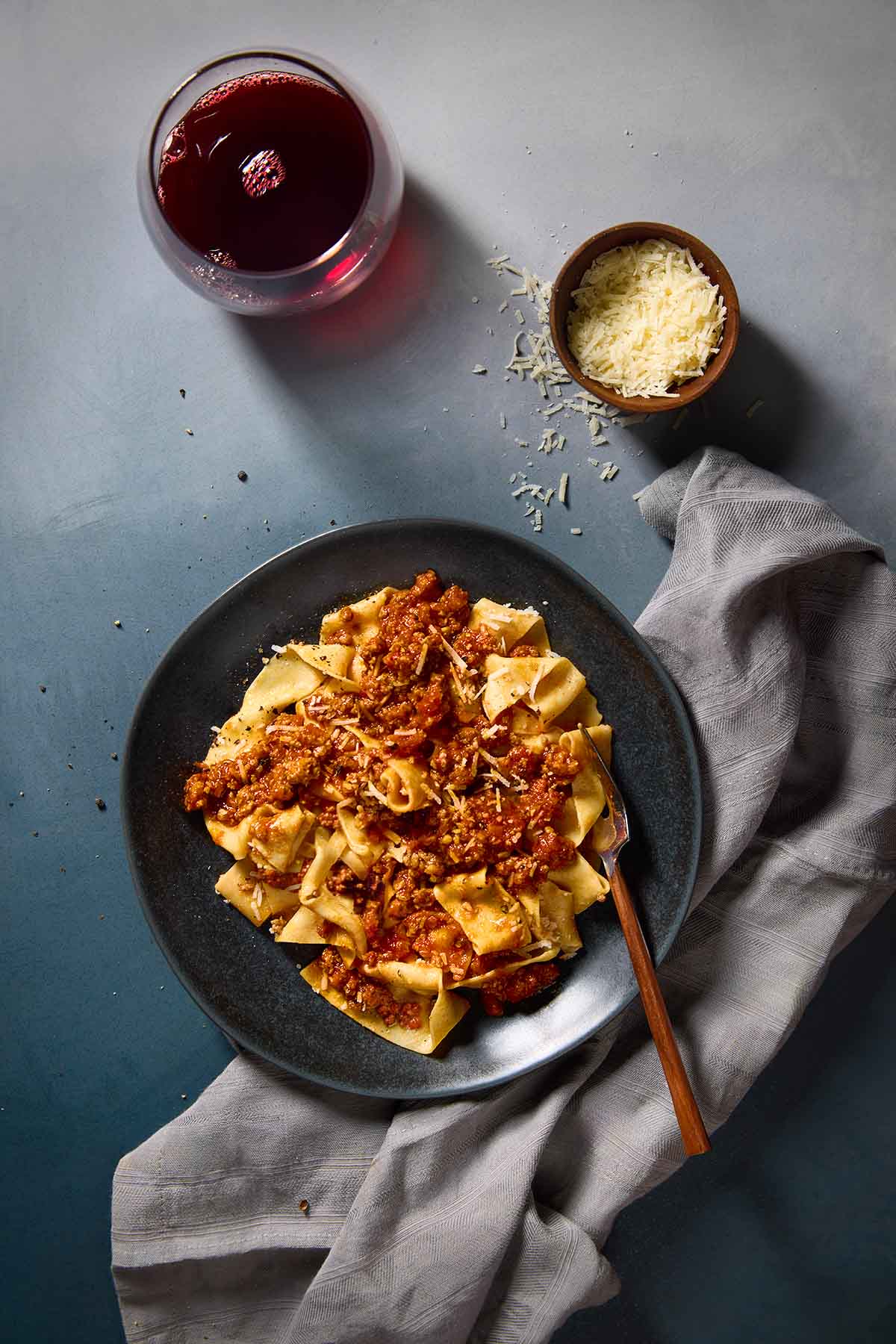
Write a Review
If you make this recipe, or any dish on LC, consider leaving a review, a star rating, and your best photo in the comments below. I love hearing from you.–David
I’ve been using recipes on Leite’s Culinaria for years and the bolognese recipe inspired by Marcella Hazan is among my favorites. Thank you, David, and team for all you do!
Jeff McWilliam
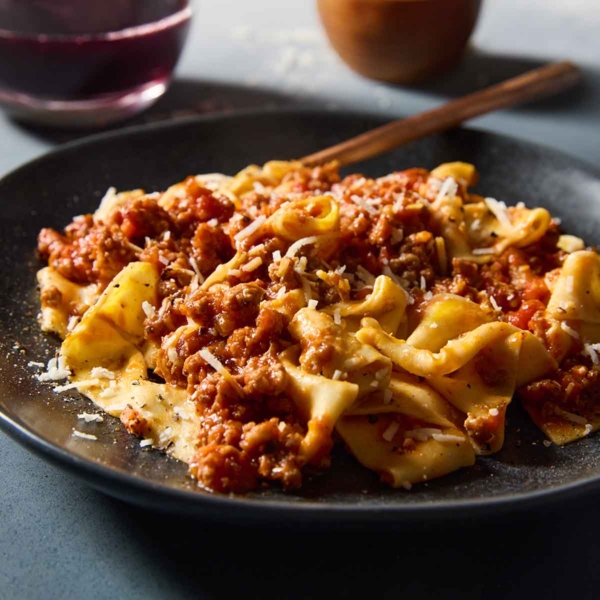
Marcella Hazan’s Bolognese Sauce
Ingredients
- 2 tablespoons vegetable oil
- 8 tablespoons (4 oz) unsalted butter, divided
- 1 cup chopped onion
- 1 1/3 cups chopped celery
- 1 1/3 cups chopped carrot
- 1 pound ground chuck, (I used 1/2 pound chuck and 1/2 pound veal)
- 1/2 pound ground pork
- kosher salt and freshly ground black pepper
- 2 cups whole milk
- 1/8 teaspoon freshly grated nutmeg, or a pinch of ground nutmeg
- 2 cups dry white wine
- 3 cups canned imported San Marzano tomatoes, (Italian plum tomatoes) with their juice
- 1 pound tagliatelle, (homemade or storebought), cooked and drained
- freshly grated Parmigiano-Reggiano cheese, at the table
Instructions
- Warm the 2 tablespoons vegetable oil and 6 tablespoons of the butter in a heavy 5-quart Dutch oven over medium heat until the butter melts and stops foaming. Toss in the 1 cup chopped onion and cook, stirring frequently, until the onion is softened and translucent, about 5 minutes.
- Toss in the 1 1/3 cups chopped celery and 1 1/3 cups chopped carrot and cook, stirring to coat them with the oil and butter, for 2 minutes.
- Add the 1 pound ground chuck (and veal if using) and 1/2 pound ground pork, a very healthy pinch of kosher salt and freshly ground black pepper. Crumble the meat with a wooden spoon and cook, stirring occasionally, until the meats have just lost their raw-red color.
☞ TESTER TIP: If there's a lot of fat in the bottom of the pan due to the pork, you can spoon some out before adding the milk.
- Reduce the heat to low. Pour in the 2 cups whole milk and simmer gently, stirring frequently, until the liquid has completely evaporated, about 1 hour.
- Stir in the 1/8 teaspoon freshly grated nutmeg. Pour in the 2 cups dry white wine and gently simmer, stirring frequently, until it's evaporated, about 1 1/4 hours more.
- Add the 3 cups canned imported San Marzano tomatoes and stir well. When the sauce begins to bubble, turn down the heat so that the sauce cooks at the laziest of simmers with just an intermittent bubble breaking the surface.
- Cook, uncovered, for 3 hours or more, stirring from time to time. While the sauce is burbling away, there's a chance that it'll start drying out. To keep the sauce from sticking to the bottom of the pot and scorching, add 1/2 cup water if necessary, just know that it's crucial that by the time the sauce has finished simmering, the water should be completely evaporated, and the fat should separate from the sauce.
- Taste a spoonful—or two—of sauce and season with salt and some good grindings of pepper to taste. Add the remaining 2 tablespoons butter to the cooked, hot pasta and toss with the sauce. Serve with freshly grated Parmigiano-Reggiano cheese on the side.
Notes
What You Need To Know About Making The Most Classic Italian Bolognese
- The more marbled the meat, the sweeter the ragu. (The most desirable cut of meat is the neck portion of the chuck. You may have to special order it from your butcher.)
- In Marcella’s original recipe, she calls for only ground chuck. Over the years, I’ve added veal and pork to the recipe. You can opt for a full-beef version.
- It’s important to salt the meat as soon as it hits the pan. This draws out the juices and imparts flavor to the Bolognese.
- Use a heavy pot that will retain heat. I use my Le Creuset 5-quart Dutch oven. Avoid using cast-iron, as the acid can interact with the metal and turn the sauce a blech color.
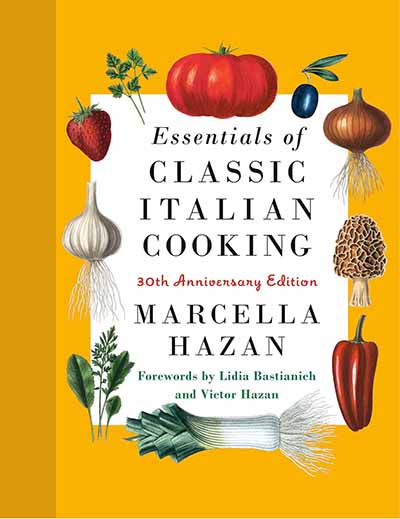
Nutrition
Nutrition information is automatically calculated, so should only be used as an approximation.
Recipe Testers’ Reviews
This is the perfect Italian Bolognese to make if you’re stuck in the house doing chores and can’t leave. A little prep work and a little stir every now and then give you a wonderful smell throughout your house and a nice, thick sauce for your pasta.
Unlike most commercial jar sauces, this sauce doesn’t have a strong tomato taste. I love that. It is pure, hearty, stick-to-your-ribs comfort food.
All you need is some warm bread, and you have a meal. The next time I make it, I’ll probably omit the oil, as I felt there was a little too much oil floating on top when it was ready to serve.
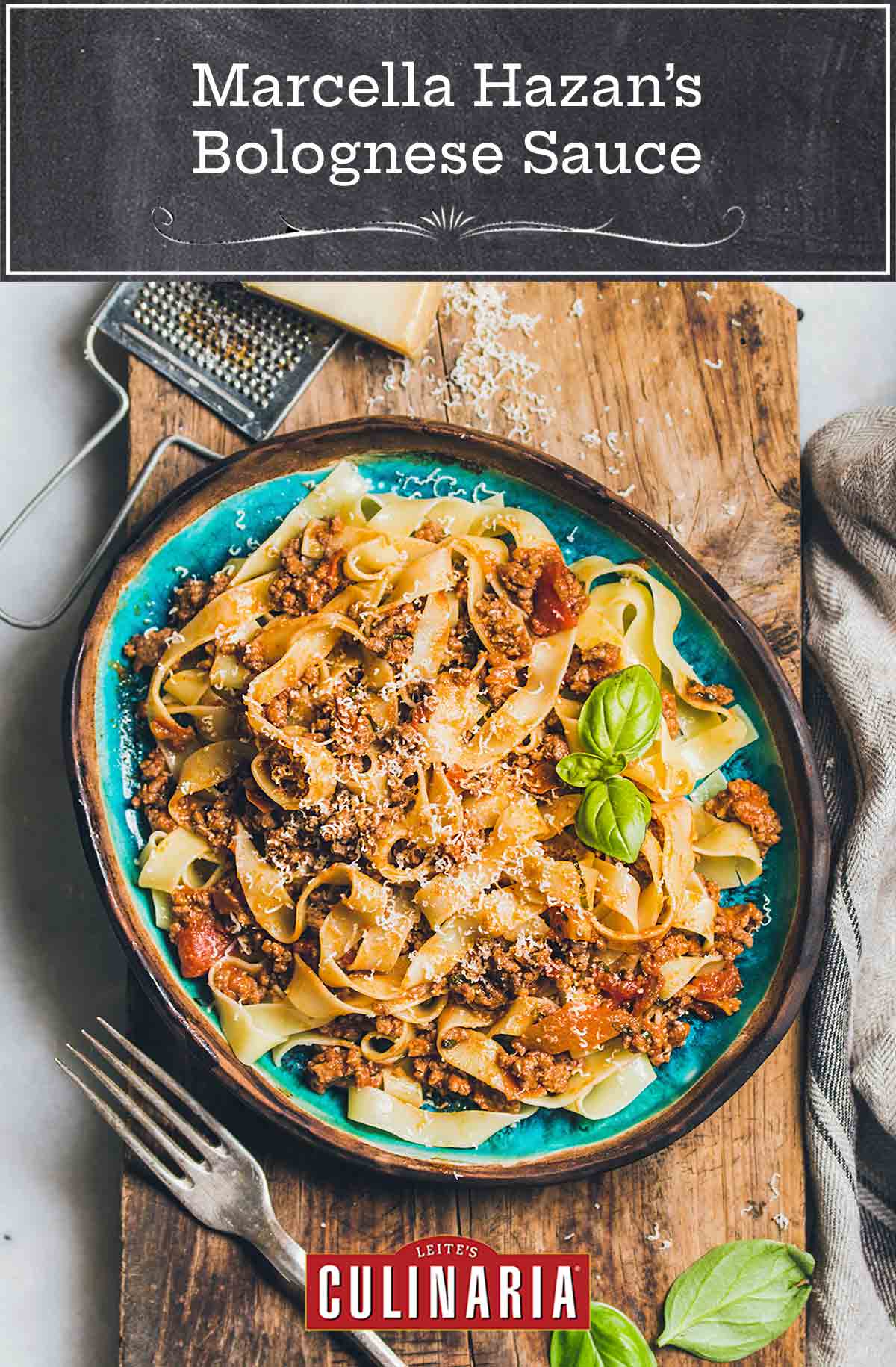
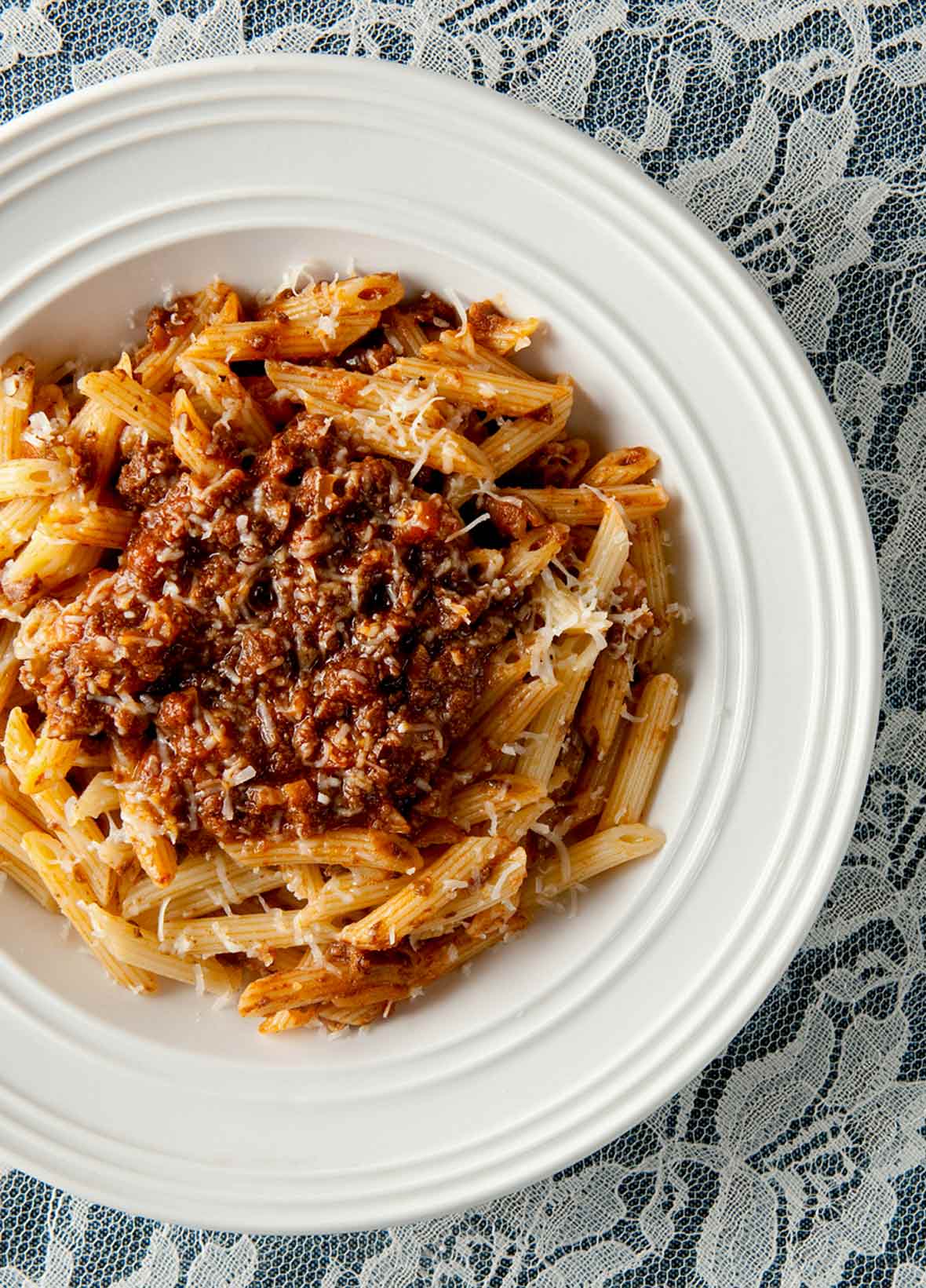
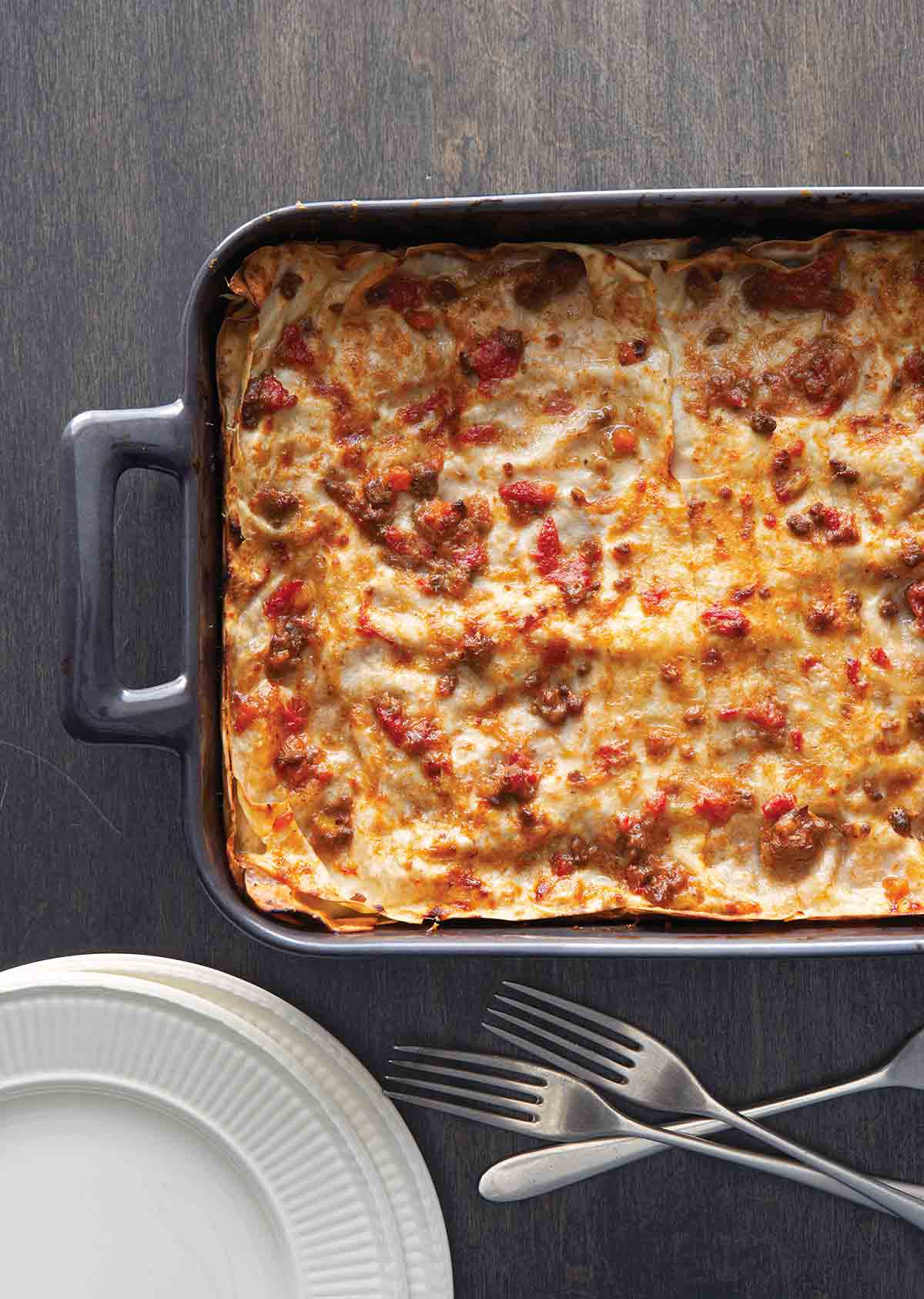










David,
Thank you for putting this recipe up with great lead in and discussions. I have been on a global search for a good Bolognese and now I think I have found it. In our own Washington DC kitchen. My mother was born in Roma and the amazing dishes I was raised on are hard to put into contact how Fortunate and blessed I am. As a military officer, I’ve travelled the globe and to me nothing compares to Italian cooking I was raised on and during my summers as a kid in Roma.
Soon as I made this dish I went on line and bought the late (Zia) Hazan’s book. I’m excited to dive intto the numerous dishes. You honor her by keeping her legacy alive and well with people like me. As my mother ages I will now enjoy using my mom’s recipient along with Marcella’s. This recipe was perfect. I executed it exactly as the book described. I want to attempt veal and pancetta my mom brought back from Italy on my next experience. Two questions for you if you could be so kind to comment. 1). Does the type of wine matter (i.e. Pinot, Chardonnay etc) 2). Do the leanness of the meats cut matter and if so how?
I’m grateful for what you have done in your website. Thank you and the great Marcella Hazan!! Thom
Thom, my pleasure. I’m so delighted you enjoyed the recipe. As far as the wine, any dry vino will do–as long as it’s something you’d drink. And as to the leanness of the meat, I use 90% for the beef and whatever the butcher hands me for pork and veal. So, that’s a long way of saying: There’s a lot of flexibility to the recipe.
Whilst the orginal authentic recipe has cream added to it (served with tanglatelli), i can assure you, nobody, i mean nobody, and that is from a 93 year old sardinian grandmother to ‘everybody i know’ (a lot) uses milk or cream in the ragu here. You yanks have had an italian job done on you by the dairy industry. And btw carbonara HAS NO CREAM either!!! 🙂 Milk and meat!?! You should try eating mussel cooked in milk, see how you get on.
Vince, well, all I can say is dear departed Marcella put milk in hers, and I’m standing by her. (And agree, never, ever put cream in carbonara.)
Hello! I am cooking for nine tomorrow and I am wondering if this recipe should be doubled for that many people. Thanks! : )
Melissa, absolutely! It may have to cook longer, though.